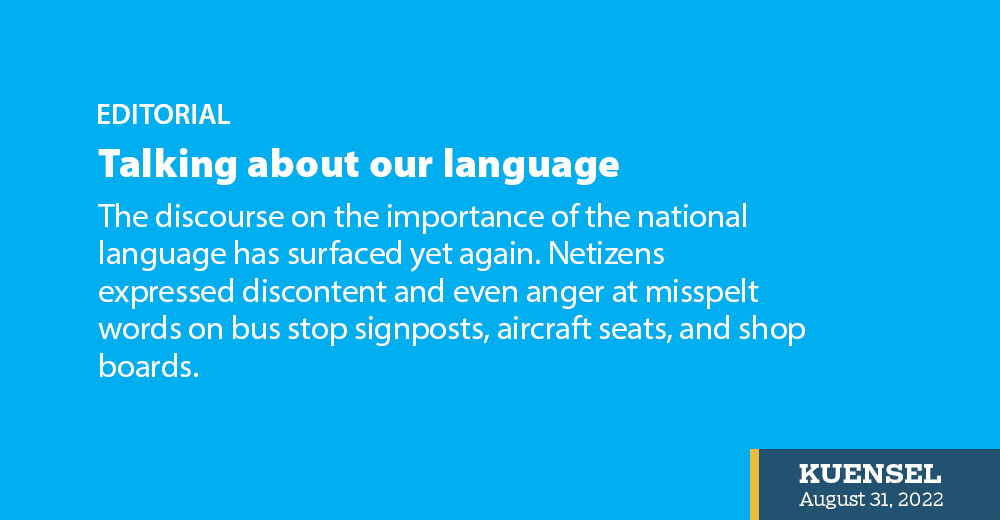The discourse on the importance of the national language has surfaced yet again. Netizens expressed discontent and even anger at misspelt words on bus stop signposts, aircraft seats, and shop boards.
The fact that most of these heated discussions were in English said much about the status of the national language.
Debating the quality and importance of Dzongkha with a professional approach will obviously make a major difference. Past debates on Dzongkha, as our experts discussed critical issues like its relationship to Choekey, often became overshadowed by personality and ego clashes. There was also a tendency for words to be more important than ideas.
Today’s debate also broaches sensitive issues like the quality and standard of teachers. Dzongkha is perceived to be a “difficult” and, therefore, “unpopular” subject. Some parents even blame our teachers for this unfortunate image of the language.
But it is no fault of our teachers most of whom grew up in a different environment. And the discipline that they sometimes symbolise in schools is much needed, judging by emerging trends. Dzongkha, like other subjects, is evolving and it is important that our Dzongkha teachers are updated on general education trends.
Without expecting the national language to immediately dominate the curriculum, the first step of responding to students’ needs and capacity is a good one. Bhutan’s phenomenal achievement in education has come from progressive policies and helping Dzongkha reach out to youth is a dynamic approach.
To start with, it will be too ambitious to tailor a Dzongkha language standard that is expected to help youth get jobs and academic careers.
Professional language might be just what our children are turning away from in schools. It will be more practical to reach out to our youth with a simple and practical format.
The Bhutanese population is already up against a tide of language influence from the media. If a language is too difficult we will pick up another through film, television or music. These are realities far more powerful than academic decisions made by expert committees.
Ultimately, a key objective of promoting our languages is that our youth do not lose contact with their families and communities. The so-called educated generation already seems to be dislocated from rural Bhutan although rural villages promise to be where all the action will be in time to come.
But we do know that Dzongkha has already made great progress in schools. Another important arena for Dzongkha, the National Assembly debate, has also seen so much improvement in recent years. Here, too, words are giving way to thoughts.
It is comforting that the national language is widely spoken today than ever before.


